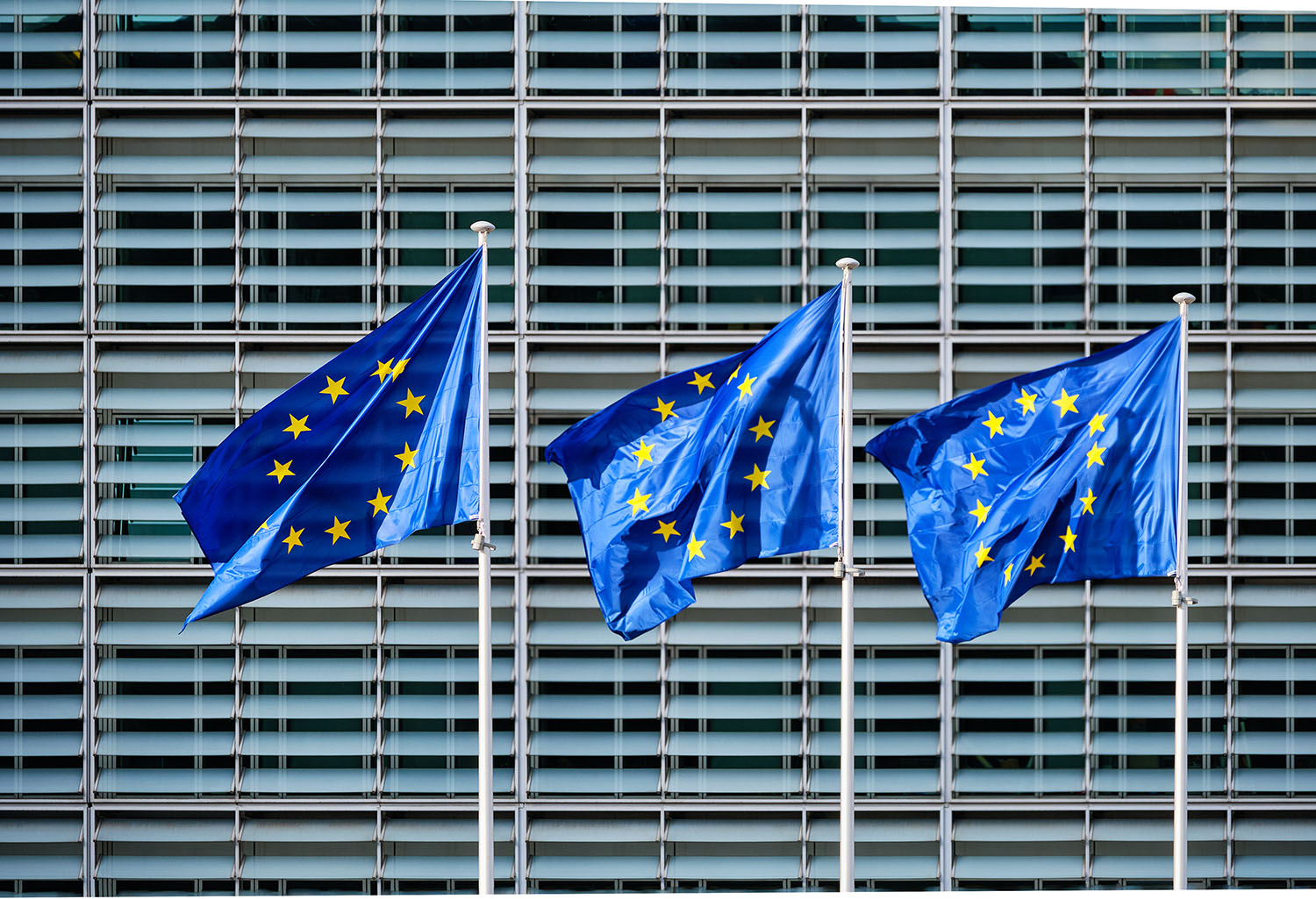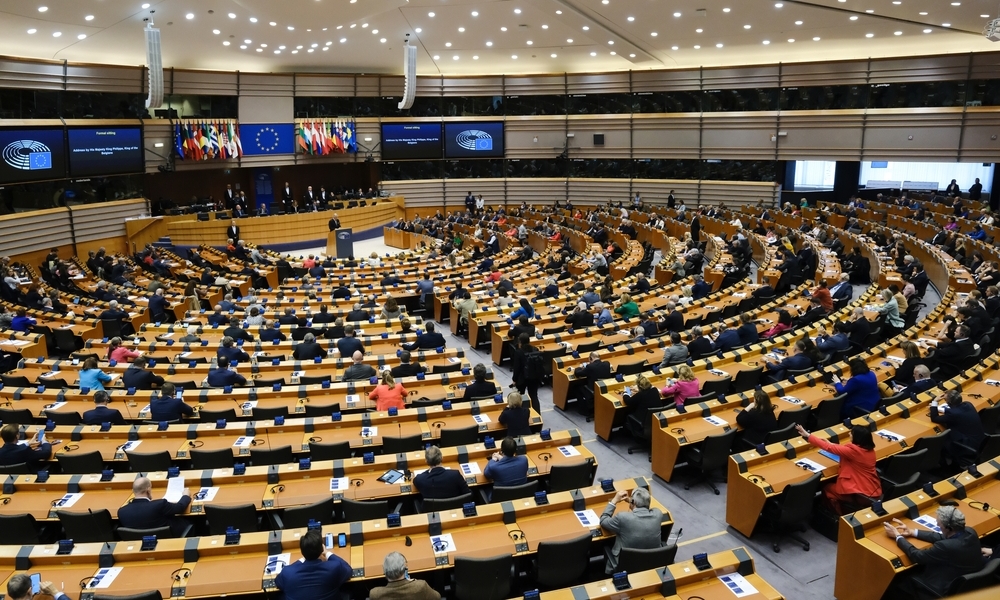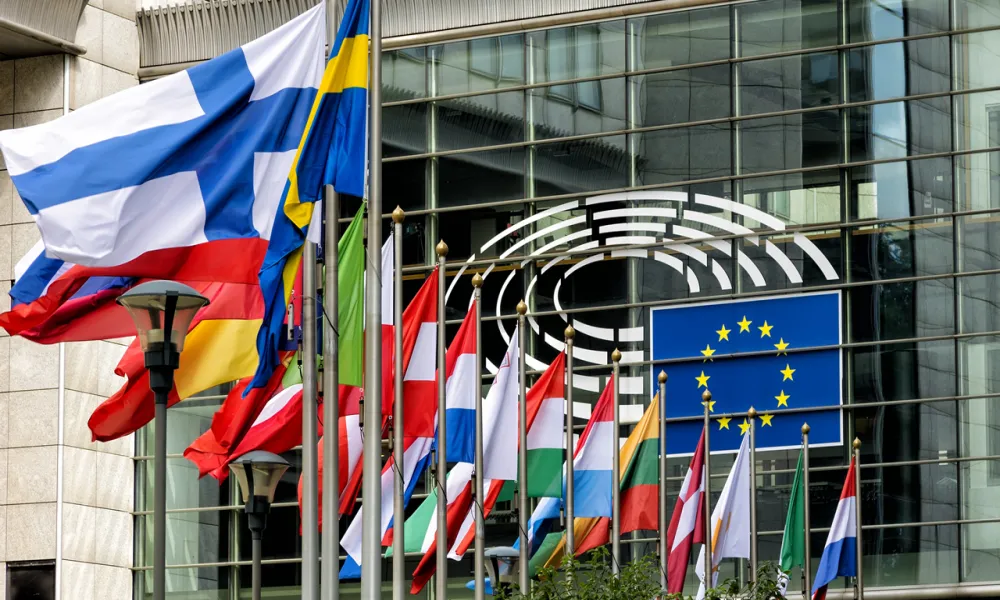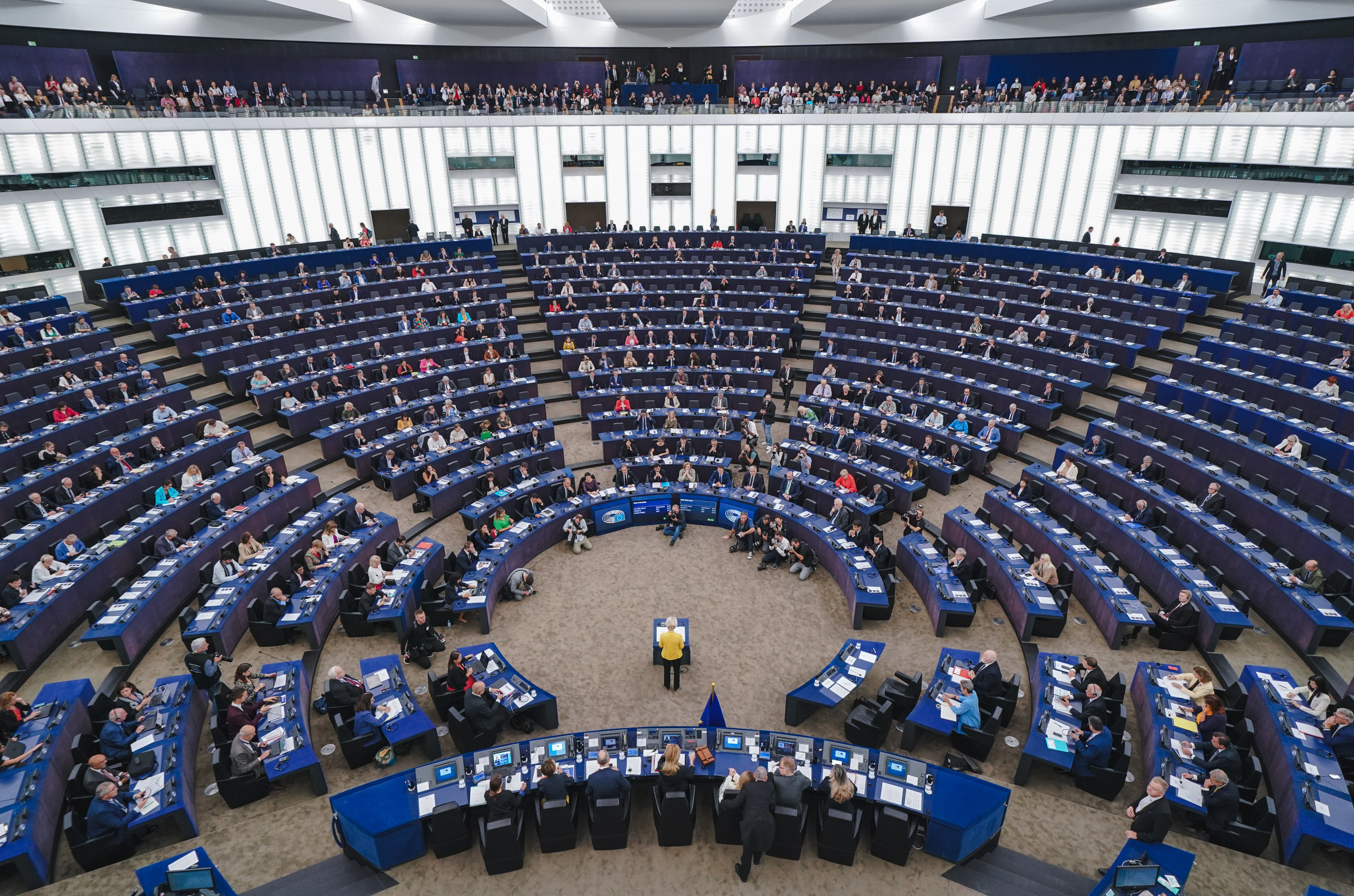Cyprus sends only six MEPs to the 720-seat European Parliament. This numerical reality means that influence cannot bemeasured by numbers but by strategy: how effectively its representatives work within their political groups, how well they leverage committees, and how consistently they connect the island’s challenges to Europe-wide debates.
From migration and security to cost of living, energy and digital transition, Cypriot MEPs face the task of making local realities visible in a chamber often dominated by the concerns of larger states.
Each of the MEPs points to specific achievements over the past years. Some highlight legislative contributions on energy or digitalisation, others underline their role in pushing humanitarian corridors in the Eastern Mediterranean, or keeping the Cyprus problem visible on the agenda.
Below, six voices and six distinct approaches:

Loucas Fourlas(EPP): Priorities and Levers
Former journalist and TV news anchor (1995-2016), later Press Secretary to presidential candidate Ioannis Kasoulides (2008) and Spokesman of the House of Representatives (2017-2019).
Fourlas describes his approach in practical terms: majorities decide outcomes in the European Parliament, so the work is to build numbers. That, he says, happens in committees and drafting rooms: less about set-pieces, more about getting texts into a shape that different groups can sign.
On files he points to, the line is consistent. For post-Brexit tuition fees, he argued that EU students already enrolled in the UK should not face abrupt, punitive increases, a position he says now informs Parliament’s stance in talks with London. As rapporteur on working conditions for health professionals, he is shaping proposals for clearer, fairer rules for doctors, nurses and pharmacists and for smoother cross-border mobility. With Cyprus-related resolutions, he stresses that majorities are assembled article by article; you secure support across groups or you don’t pass a text.
On the GSI electricity interconnection, Fourlas wants the Commission to defend strategic European projects against attempts by third countries to undercut them, while at the same time pressing all negotiating sides to resolve technical and financing issues and move the scheme forward without excessive cost for Cypriot taxpayers.
He coordinated inside the EPP for the urgent resolution on the five Greek-Cypriot detainees, arguing it should: (a) address Turkey directly as the responsible power in the occupied areas, and (b) leave open further measures if there is no compliance. He makes the point that such resolutions are pressure tools rather than solutions in themselves.
Domestically, he calls for regular, structured coordination between Cyprus’s institutions and its MEPs so sensitive files are anticipated early and handled consistently. The emphasis throughout is on method: preparation, coalition-building and follow-through, rather than headline lines.
“Results come from persistence, documentation and teamwork, not big words.”
Michalis Hadjipandela (EPP): Guard the competitive core, Demand clarity on energy
ACA-qualified chartered accountant and finance executive, who also served as Cyprus’s Minister of Health during 2021-2023 (and earlier chaired Anorthosis Famagusta FC).
Drawing on his background in administration and health, Hadjipandela frames his role as safeguarding Cyprus’ competitive advantages while promoting reform where needed.
As rapporteur in the Economic and Monetary Affairs Committee on tax matters, he says he worked to head off broad-brush changes that could have damaged Cyprus. For example, any push towards a one-size-fits-all higher corporate tax rate. He also incorporated amendments proposed by Cypriot professional bodies: “For once, Cyprus was seriously heard in Brussels, and the final text avoids negative spillovers while adding provisions that help us.”
On competitiveness, he is clear: Cyprus’ services sector “is already among Europe’s strongest outside outliers like Luxembourg or the Netherlands.” The priority is not to chase ever more competitiveness, but “to safeguard what we have by preventing damaging new rules.”
Energy is the other pillar. In the Industry, Research and Energy Committee, he demanded written, detailed numbers on the GSI: real costs for Cyprus and Greece, trade-offs, and timelines. He sees Europe’s strategic interest in interconnections, sharpened by Russia’s war in Ukraine, but insists that Cypriot taxpayers must not shoulder a disproportionate burden.
Back home, he wants tax simplification that people and investors can understand, targeted relief for vulnerable households facing inflation, and the preservation of incentives that draw high-value activity: “Scrapping the tools that sustain one of our most dynamic sectors would be a mistake.”
On the five detainees, he coordinated inside the EPP and with the other Cypriot MEPs to push for a text that names the individuals, condemns the detentions and signals consequences. The lesson, he says, is that a small country can still shape Parliament’s stance when it speaks with a strong voice.

Costas Mavrides (S&D): Social priorities, institutional realism, and a housing push
Academic economist by training (PhD, University of Houston), he taught economics in the U.S., Greece and Cyprus before entering the European Parliament in 2014.
A veteran of the economic files, Mavrides blends political bluntness with institutional realism. Social media familiarity skews voter behavior, he concedes, but “in democracy responsibility sits with citizens, and mistakes can be corrected.” Inside Parliament, he often breaks with the party line on national issues, a choice that “probably cost opportunities for advancement,” but which he presents as principled.
He is critical when EU institutions sideline Parliament, on Euro-defence or Turkey, for instance, and wants explicit references to the substance of the Cyprus problem, not evasions. The upcoming Cypriot Presidency is a chance, he says, if Nicosia works methodically.
Substantively, Mavrides has pushed to turn housing from a local anguish into a European priority. As a negotiator on the Recovery and Resilience Facility, he helped secure a window for member states to direct funds to housing, a door Cyprus has under-used, he argues, because of mindset, coordination gaps and vested interests: “When supply rises like in student housing and affordable ownership, some won’t keep their windfall margins.” He wants a European Housing Plan during Cyprus’ Presidency and would back a Commissioner portfolio that names ‘Housing’ in the title. But he insists on practical levers - standards, materials, incentives, best practices - rather than platitudes.
His broader lesson on legislative impact is prosaic: the Commission proposes, Parliament disposes - if you are early, allied and technically prepared. That, more than applause lines, is how small states shape outcomes.
George Georgiou (The Left): Rights, transparency and a tougher EU
Secondary-school teacher of Greek and History who served as an AKEL MP (2011 & 2016-2019), sitting on Foreign Affairs, Education and other committees, and heading Cyprus’s delegation to the Parliamentary Assembly of the Mediterranean.
Georgiou sketches a vision of Europe as “more humane, just and peaceful”, then lists where, in his view, it falls short: a flawed approach to the war in Ukraine, inaction on Gaza, a tilt towards militarisation at the expense of social policy, a green transition that retreats under pressure and migration rules that he calls neither fair nor democratic.
On committees, he serves on Foreign Affairs (AFET) and Environment and Public Health (ENVI). He was rapporteur on water sustainability, a priority for Cyprus and the southern EU aimed at safeguarding water as a public good while supporting agriculture and basic needs. For the Left, he is now handling the human medicines package and pushing protections for health workers’ labour rights; he has also worked on reproductive rights. Beyond standing committees, he served as a vice-chair in the PEGA inquiry on spyware, pressing for stronger limits and oversight, and sat on the ad hoc probe into COVID vaccine procurement, calling for disclosure of the Commission’s dealings and clearer accountability.
“Transparency is not a luxury, it’s a democratic duty.”
His line on Gaza is firm: Europe is absent, and current conduct under the banner of self-defence clashes with international law. Humanitarian aid is “minuscule,” and he also faults the Cypriot government’s stance for relying on symbolism. “Cyprus has one strong instrument, international law. If double standards hollow it out, it will rebound on us.”
On the five Greek Cypriots detained in the north, he wrote twice to President Metsola in late August; he says he received no reply. In his reading, EU institutions stay quiet because Turkey is ‘useful’ - for population, upgraded relations, customs union and visas. “Do not expect miracles from a resolution,” he warns, “but we must persist.”
He casts the far right’s rise as a product of austerity and inequality, and calls for mobilisation, organisation and political education, from wage indexation to social rights. Journalism, in his view, must record reality “without ulterior motive, with respect for different views and transparency.”
Geadis Geadi (ECR): Security, practical fixes, and institutional coordination
Long-time ELAM spokesperson (2008–2024) and parliamentary partner (2016-2024), with studies in computer science and a later political-science degree from the University of Cyprus.
Geadi’s focus is on security and order, with a pragmatic streak. “Influence is often earned through networks, conferences and interventions outside the hemicycle.” Resolutions have political value, he says, “but results come when you convince people you are serious, reliable and active.”
During the summer wildfires, he says he used contacts in Italy, Bulgaria, Egypt and Israel to explore aerial support. Some avenues stalled; others advanced via government channels. The point, he argues, is to move early, inform institutions and keep pressing so that help materialises.
On foreign affairs, he rejects the tactic of “speaking less about Cyprus so as not to tire our partners.” The intense focus on Ukraine, he argues, is a chance to draw careful parallels that keep Cyprus on the radar, while countering revisionist narratives.
On migration, he calls for a strict common policy: applicants who break the law in the host country should not move freely across the EU; reliable identification is essential to stop “multiple identities across member states.” That requires resources and staff, which he proposes funding by pruning “waste” elsewhere.
He proposes a quarterly Council of European/Foreign Affairs with the President, the Foreign Minister and MEPs so Cyprus acts pre-emptively on files that hit the island. The idea was well-received, he says, but not yet implemented.
Fidias Panayiotou (Independent): Converting visibility into votes
Cypriot content-creator and YouTuber with a multi-million audience, who rose to prominence through viral projects and interviews before running as an independent in 2024.
The Parliament’s most unconventional Cypriot voice, Fidias arrived with no party structure but huge public reach. Year one was immersion; “I said yes to everything to learn how the House works.” Year two is focus: a signal-over-noise filter and a bid to assemble a network of ~50 MEPs, independents and group members to co-sign amendments, open debates and move issues. He is even testing the waters for a new political group: “Hard? Yes. But we are trying.”
His strategic north star is ‘peace’: “Normalise relations with China and Russia, deepen ties with India, and reduce Europe’s dependence on the US”. On Cyprus, he believes applying political pressure is possible, but “the big levers are national; the President and the parties.” He is open to backing independents in national elections, or doubling down on building a European bloc that also lifts Cyprus’ influence.
Education, he notes, is national competence; as an MEP he has “zero formal authority” there. The work-around is public pressure, including a co-decision platform where voters co-shape his votes on big files. “That’s not populism; it is representation,” he says, contrasting it with whip-driven party discipline. On media, he wants both social and traditional, plus fact-checking for everyone (in the spirit of community notes), resisting any single “guardian of truth.”
He is candid about methods: goodwill with colleagues so they later support Cypriot priorities. And education at scale via his podcast to popularise history, philosophy and entrepreneurship: “If the school won’t change fast, we educate the public and increase pressure for reform.”
From rhetoric to results
Taken together, Cyprus’ six are set to chase practical wins over theatrics. Expect a fair-terms push on the GSI interconnection, housing turned into deliverables, using the Cypriot Presidency as a lever, and a sharper line on rights and transparency from Gaza to Ukraine. Most agree that the new firefighting hub announced last week was a result of coordinated efforts that put Cyprus first on the agenda. Security and migration will be tackled through enforceable rules and recognition of distortions, while newer tactics such as turning public reach into cross-party votes, aim to convert visibility into outcomes. Their common thread is early, coordinated action with Nicosia and sustained pressure in Brussels and Strasbourg. If Cyprus, through its MEPs, manages to specialize and persist, the rest of the term can deliver gains people feel at home.

